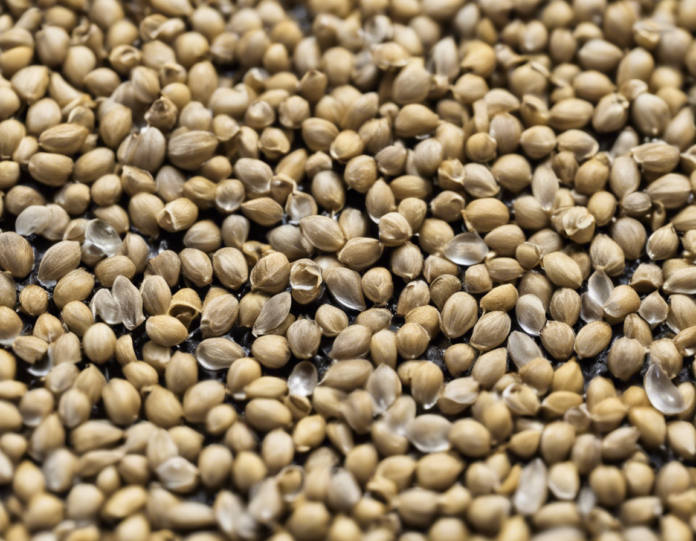Introduction:
Mayseeds, a key component in various industries, possess both benefits and potential drawbacks. While they are widely known for their versatility and effectiveness in different applications, such as providing nourishment for livestock, they are also associated with certain challenges – leak issues being one of them. In this blog post, we will delve into the impact of Mayseeds on leak issues, exploring why these problems occur, how they can be addressed, and what preventive measures can be taken to mitigate their impact.
Understanding Mayseeds:
Mayseeds, also known as maize seeds, are grains that serve as a staple food for many communities worldwide. Rich in carbohydrates, fiber, and essential nutrients, maize seeds are used not only for human consumption but also as animal feed and a raw material in various industries. Their versatility makes them a valuable commodity, contributing significantly to the global economy.
The Link Between Mayseeds and Leak Issues:
One of the common challenges associated with Mayseeds is their susceptibility to moisture absorption. When exposed to high humidity or inadequate storage conditions, Maize seeds can absorb moisture, leading to mold growth, spoilage, and ultimately, leak issues. This can have detrimental effects on the quality and shelf life of the seeds, compromising their nutritional value and commercial viability.
Impact of Leak Issues:
The presence of leaks in stored Mayseeds can result in significant losses for farmers, producers, and distributors. Beyond the economic implications, leak issues can also pose health risks, as mold-contaminated seeds may harbor toxins harmful to both humans and animals. Moreover, leaks can compromise the integrity of seed batches, affecting their germination rate and overall quality.
Preventing and Addressing Leak Issues:
To mitigate the impact of leak issues associated with Mayseeds, a proactive approach to storage and handling is essential. Here are some key strategies to prevent and address leaks effectively:
1. Proper Storage:
Maize seeds should be stored in dry, well-ventilated facilities equipped with moisture control mechanisms. Silos, bins, or air-tight containers can help protect the seeds from excessive humidity and prevent moisture absorption.
2. Regular Monitoring: Implement a monitoring system to check for signs of leaks, mold growth, or moisture accumulation in stored Maize seeds. Regular inspections can help identify issues early on and prevent them from escalating.
3. Quality Testing: Conduct quality tests on Mayseeds before storage to ensure they meet established standards for moisture content and purity. Investing in quality testing equipment can help detect potential issues and avoid storing compromised seed batches.
4. Proper Handling: Handle Maize seeds with care to prevent damage that could lead to leaks. Avoid rough handling during transportation and storage, and use appropriate equipment to minimize the risk of seed breakage or contamination.
5. Implementing Best Practices: Adhere to industry best practices for Mayseeds storage and handling, including following recommended temperature and humidity levels, using pest control measures, and labeling seed batches for traceability.
Conclusion:
In conclusion, while Mayseeds offer numerous benefits and applications, they also come with challenges, such as leak issues that can impact their quality, safety, and market value. By understanding the factors contributing to leaks, implementing preventive measures, and adopting best practices in storage and handling, stakeholders in the Maize seed industry can minimize the risks associated with leak issues and ensure the integrity of their seed supply.
FAQs (Frequently Asked Questions):
Q1. What causes leaks in stored Mayseeds?
A1. Leaks in stored Mayseeds are often caused by moisture absorption due to inadequate storage conditions, high humidity levels, or poor ventilation.
Q2. How can I tell if my Mayseeds have leaks?
A2. Signs of leaks in Maize seeds include mold growth, musty odors, discoloration, and clumping of seeds due to moisture absorption.
Q3. Are leak issues in Mayseeds harmful to human health?
A3. Yes, leaks in Mayseeds can be harmful as mold-contaminated seeds may contain toxins that pose health risks if consumed by humans or animals.
Q4. Can leak issues in Mayseeds be prevented?
A4. Yes, leak issues in Mayseeds can be prevented by storing seeds in dry, well-ventilated facilities, conducting regular monitoring, and implementing quality testing procedures.
Q5. How do leak issues in Mayseeds impact their nutritional value?
A5. Leak issues in Mayseeds can lead to mold growth, spoilage, and nutrient loss, ultimately affecting their nutritional value and quality.
Q6. What are the economic consequences of leak issues in stored Mayseeds?
A6. Leak issues in stored Maize seeds can result in significant economic losses for farmers, producers, and distributors due to reduced market value and crop wastage.
Q7. What role does humidity control play in preventing leaks in Mayseeds?
A7. Proper humidity control in storage facilities is essential to prevent leaks in Mayseeds as excess moisture can lead to mold growth and seed spoilage.
Q8. Are there specific storage containers recommended for preventing leaks in Mayseeds?
A8. Silos, bins, and air-tight containers are recommended for storing Maize seeds to prevent leaks by minimizing exposure to moisture and maintaining seed quality.
Q9. How can leak issues in Mayseeds be addressed once they are detected?
A9. If leaks are detected in stored Mayseeds, prompt actions such as segregating affected batches, improving ventilation, and reducing humidity levels can help address the issue.
Q10. What are the long-term implications of ignoring leak issues in stored Mayseeds?
A10. Ignoring leak issues in stored Mayseeds can lead to widespread mold contamination, reduced seed quality, and potential health hazards, impacting both economic and health aspects of the seed supply chain.








